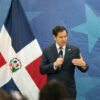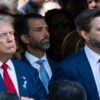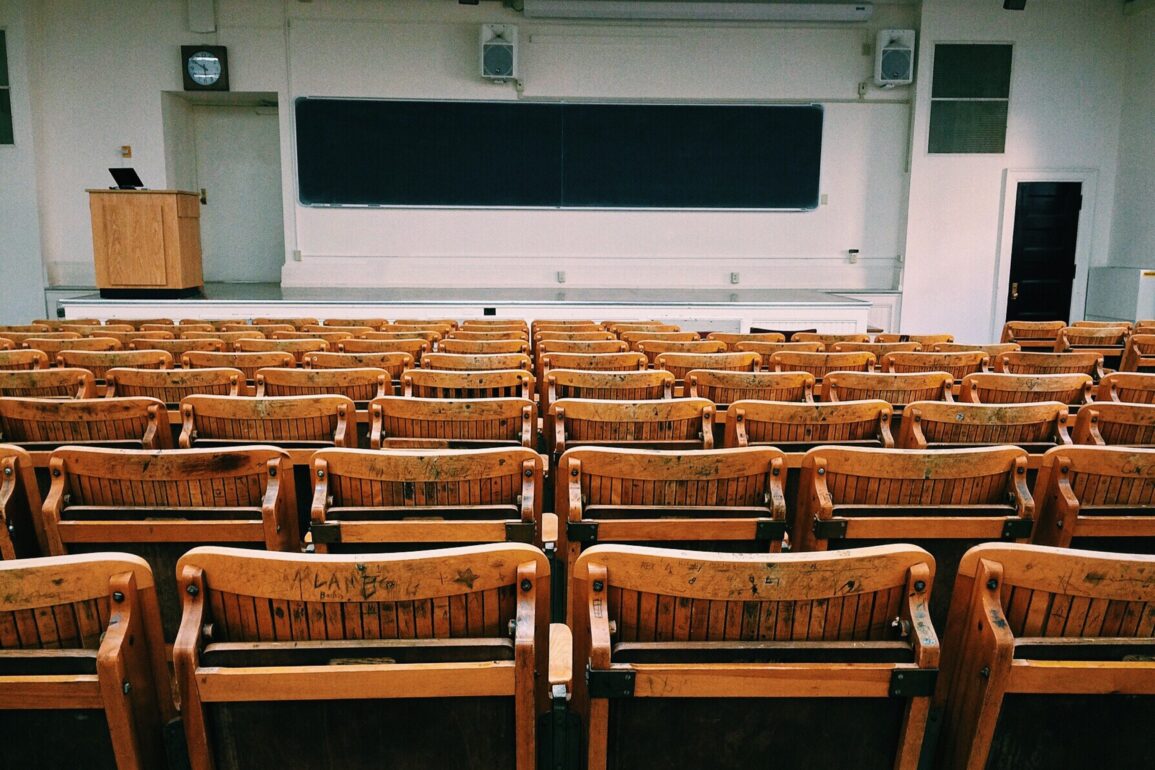Originally appeared on The Daily Signal.
By: Lindsey Aden
Polite discourse among citizens about political issues has become increasingly hard to find in recent years. This is especially true at colleges and universities around the country, where students are supposed to use debate and discussion with classmates to help develop their opinions.
This begs the question: If college-aged students are afraid to engage in civil discourse about political affairs with their peers, how can we expect them to do so in the future when many of them will be leading our country?
Growing up in the early 2000s, this lack of debate was anything but apparent to me. My very civically engaged parents saw no reason to withhold their political opinions and beliefs from my brother and me. They always boasted about being the first ones at the ballot box on Election Day in our small town of 200 people, and I even volunteered a few months before my 18th birthday to work as an election judge for the 2020 presidential primary.
With a mom serving under the umbrella of the Department of Defense and a father who was a hardworking, conservative farmer, political opinions in our household were hardly divisive. It was not evident to me early on that politics could be such a taboo topic in a public setting.
My neighboring friends and family often had signs for the same conservative candidates in their yards, and discussions on political viewpoints were not uncommon.
By the time I was in high school, I looked forward to analyzing American history and current events on a daily basis with my left-leaning high school teachers.
Anxious to be around young individuals who loved politics and government as much as I did, I jumped at the chance to attend a large university far from home to engage in passionate discussions on politics and government. I wanted to be a lawyer, after all, and constitutional and political debating was all I wanted to do.
It was this dream that took me to the University of Georgia in Athens, Georgia, a lengthy 10 hours from my hometown in Illinois.
UGA brought together several niche qualities that I was looking for in an institution. It is a large, diverse university in the epitome of a Southern state. In its small school for political science, there had to be students and teachers who came from both sides of the political aisle who were open to opinions from around the political spectrum, right?
It was not until the first semester of my sophomore year that I realized I may have been very wrong about this assumption.
I remember sitting in the last row in class, apprehensive at first because I was the only 19-year-old kid sitting in a graduate class with 30-year-old Ph.D. students talking about their marriages and children. UGA allows a small number of students to take 8000-level graduate classes during their undergraduate years to count toward honors credit. I would quickly learn that age would not be the only thing where my classmates and I would differ.
Growing up, I had always been the quiet kid in class unless I knew for a matter of fact that I had the correct answer. My mother had taught me to be cognizant of the opinions of others and carefully consider my own thoughts before spewing them around to others. I knew this quality would come in handy in graduate classes where I was significantly outnumbered by those who were older than me and who didn’t share my political opinions.
I sat through a number of evening classes that semester in which I hardly talked. Instead, I sat back and soaked in the intelligent connections that my professor and fellow students made. I thrived on hearing from students who had devoted their academic careers to debating and analyzing government and political institutions.
Very quickly, I noticed how my peers often referenced left-leaning politicians when highlighting positive policy enacted by the U.S. Congress. Moreover, I noticed how conservatives, or Republicans for that matter, were usually portrayed in a negative light, if they were mentioned at all.
The overwhelming agreement on political opinions among this devoted group of political science students did not surprise me. By that time, I had been in plenty of classes with outspoken left-leaning students. However, the fact that none of my peers seemed to have conservative or right-leaning opinions on the topics we discussed was more than just a little odd.
After one of my classes in my sophomore year, I remember another quiet student walking up to me. She had noticed the sticker on my laptop promoting a conservative candidate I had worked for, and she asked me if I was a Republican. I told her that I was, and she said she was shocked to find someone who was on the same side of the political aisle as her. We walked together for a while, and she told me about how reluctant she was to speak up in class amongst her left-leaning peers.
This depiction threw me for a loop. She was a 24-year-old master’s student attending a popular Southern school. Surely, there were other right-leaning individuals in her program, right? And surely, the political differences between her and her classmates did not mean that she was left out of most conversations altogether?
I would come to find out that she was the only conservative in her cohort of graduate students.
She told me about how she chose to focus on her research and avoided discussing politics with her classmates. I was shocked by how an individual in her position avoided discussing major components of her field of study with her peers because she feared the judgment and broken friendships that might ensue.
It turns out that polite discourse about politics was not what either of us had found in our programs. Instead, students at our school avoided controversial topics and opinions that differed from those around them. Prominent issues were either not brought up or only portrayed by one side of the aisle.
Whether you consider yourself to be a Democrat or a Republican, this is an issue that should be of importance to us all. Our country was built by Founders who made it their mission to debate controversial topics amongst themselves to better form our democracy. The framework of our government requires our leaders to debate and discuss issues with one another and their constituents to attempt to make the best decisions for the good of all individuals.
As students attend major colleges and universities across the country, they should feel that they are free—encouraged even—to discuss relevant political issues with those who may disagree with them.
The students who are attending these schools are members of the next generation that will lead our country. If they cannot engage in political discussions at an academic level, how are we ever supposed to expect them to do so as future leaders of our nation?
Lindsey Aden is an intern in the President’s Office at The Heritage Foundation and a member of Heritage’s Young Leaders Program.
This Article Originally Appeared on The Daily Signal. Read the original here.






I’ve heard that college campuses (nearly universally) are Liberal bastions that shut out any and all Conservatives (students, guest speakers, teachers). Shocking for a country with guaranteed Freedom of Speech.
This MUST CHANGE to save our country from its demise. Socialist thinking has become deeply rooted in our education system from K-college advancement levels. This MUST CHANGE.
America will not survive under One World Order. Freedom will not survive under Socialism.